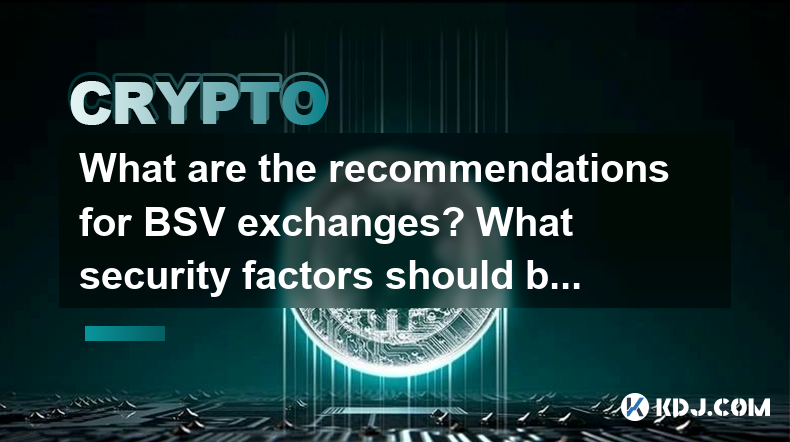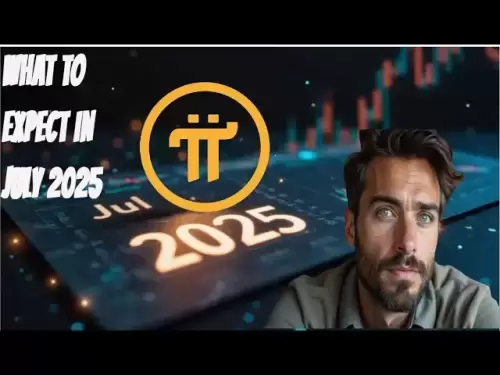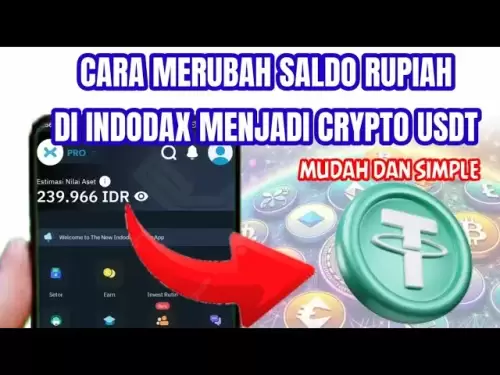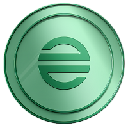-
 Bitcoin
Bitcoin $107,443.3008
-1.17% -
 Ethereum
Ethereum $2,494.2503
-0.63% -
 Tether USDt
Tether USDt $1.0003
0.00% -
 XRP
XRP $2.2496
2.23% -
 BNB
BNB $658.7569
0.63% -
 Solana
Solana $154.9826
1.94% -
 USDC
USDC $1.0000
0.01% -
 TRON
TRON $0.2799
1.07% -
 Dogecoin
Dogecoin $0.1659
-1.78% -
 Cardano
Cardano $0.5745
0.25% -
 Hyperliquid
Hyperliquid $39.7005
0.13% -
 Bitcoin Cash
Bitcoin Cash $519.5989
3.78% -
 Sui
Sui $2.7874
-2.40% -
 Chainlink
Chainlink $13.3762
-1.69% -
 UNUS SED LEO
UNUS SED LEO $9.0784
-0.64% -
 Avalanche
Avalanche $17.9846
-2.81% -
 Stellar
Stellar $0.2390
-0.06% -
 Toncoin
Toncoin $2.9028
0.25% -
 Shiba Inu
Shiba Inu $0.0...01147
-2.17% -
 Litecoin
Litecoin $86.6956
-1.27% -
 Hedera
Hedera $0.1508
-0.50% -
 Monero
Monero $322.6222
3.26% -
 Polkadot
Polkadot $3.4124
-2.99% -
 Dai
Dai $0.9999
0.00% -
 Bitget Token
Bitget Token $4.5434
-1.97% -
 Ethena USDe
Ethena USDe $1.0002
0.00% -
 Uniswap
Uniswap $7.1562
-2.61% -
 Aave
Aave $275.8830
-1.02% -
 Pepe
Pepe $0.0...09790
-4.04% -
 Pi
Pi $0.5018
-5.09%
What are the recommendations for BSV exchanges? What security factors should be paid attention to when choosing a platform?
Choose a secure BSV exchange like Binance or Kraken, considering factors like regulatory compliance, 2FA, cold storage, and insurance for safe trading.
May 04, 2025 at 02:35 am

When it comes to trading Bitcoin SV (BSV), selecting the right exchange is crucial for both the efficiency and security of your transactions. This article will guide you through the recommendations for BSV exchanges and highlight the essential security factors you should consider when choosing a trading platform.
Understanding BSV and Its Exchanges
Bitcoin SV (BSV) is a digital currency that emerged from a hard fork of Bitcoin Cash (BCH) in 2018. It aims to fulfill the original vision of Bitcoin as a peer-to-peer electronic cash system. As with any cryptocurrency, the choice of exchange can significantly impact your trading experience and the safety of your assets.
Recommended BSV Exchanges
There are several exchanges where you can trade BSV, each with its own set of features and security measures. Here are some of the most reputable platforms:
Binance: Known for its high liquidity and wide range of trading pairs, Binance is a popular choice for BSV traders. It offers both basic and advanced trading options, catering to both beginners and experienced traders.
Huobi: Huobi is another well-established exchange that supports BSV trading. It is known for its robust security measures and user-friendly interface, making it suitable for traders of all levels.
CoinEx: CoinEx is a global cryptocurrency exchange that offers BSV trading with competitive fees and a variety of trading pairs. It is known for its focus on security and user experience.
Kraken: Kraken is a reputable exchange that supports BSV trading. It is known for its strong security protocols and regulatory compliance, making it a trusted platform for trading.
Security Factors to Consider When Choosing a BSV Exchange
When selecting an exchange for trading BSV, it's essential to consider several security factors to protect your assets and personal information. Here are the key elements to look for:
Regulatory Compliance
Regulatory compliance is a crucial aspect of choosing a secure exchange. Platforms that adhere to regulations set by financial authorities are generally more trustworthy. Look for exchanges that are registered with relevant regulatory bodies and comply with Know Your Customer (KYC) and Anti-Money Laundering (AML) policies.
Two-Factor Authentication (2FA)
Two-Factor Authentication (2FA) adds an extra layer of security to your account. When enabled, you'll need to provide a second form of verification, usually a code sent to your mobile device, in addition to your password. This significantly reduces the risk of unauthorized access to your account.
Cold Storage
Cold storage refers to the practice of keeping a significant portion of the exchange's funds offline, away from potential online threats. Exchanges that use cold storage are less vulnerable to hacks and theft, making them a safer choice for storing your BSV.
Security Audits
Security audits conducted by independent third parties can provide assurance about the security of an exchange. Look for exchanges that have undergone regular audits and have transparently published the results. This demonstrates their commitment to maintaining high security standards.
Insurance
Insurance against theft or loss of funds is another important security feature. Some exchanges offer insurance policies that protect users' assets in the event of a security breach. While not all exchanges provide this, it can be a valuable safeguard for your investments.
How to Evaluate the Security of a BSV Exchange
Evaluating the security of a BSV exchange involves several steps to ensure you're making an informed decision. Here's how you can assess the security of a platform:
Research the Exchange's History: Look into the exchange's history, including any past security breaches or incidents. A platform with a clean record is generally more trustworthy.
Check User Reviews and Ratings: User reviews and ratings can provide insights into the experiences of other traders. Look for consistent feedback on the exchange's security measures and customer support.
Review Security Features: Examine the exchange's security features, such as 2FA, cold storage, and insurance. Ensure that these features meet your security standards.
Assess Regulatory Compliance: Verify that the exchange is compliant with relevant regulations and has a clear policy on KYC and AML procedures.
Evaluate Customer Support: Good customer support is essential for addressing any security concerns promptly. Check the exchange's response times and the quality of their support services.
Practical Steps to Secure Your BSV on an Exchange
Once you've chosen a secure BSV exchange, there are practical steps you can take to further protect your assets:
Enable Two-Factor Authentication (2FA): Always enable 2FA on your exchange account. This can be done through the security settings on the platform.
Use Strong Passwords: Create a strong, unique password for your exchange account. Avoid using easily guessable information and consider using a password manager.
Withdraw Funds Regularly: Don't leave large amounts of BSV on the exchange. Withdraw your funds to a secure wallet regularly to minimize the risk of loss in case of a security breach.
Monitor Your Account: Regularly check your account for any unauthorized transactions or suspicious activity. Report any issues to the exchange's customer support immediately.
Stay Informed: Keep up to date with the latest security news and best practices. Being informed can help you take proactive steps to protect your assets.
Frequently Asked Questions
Q: Can I trade BSV on decentralized exchanges (DEXs)?
A: Yes, BSV can be traded on some decentralized exchanges. However, the liquidity and trading pairs available on DEXs may be limited compared to centralized exchanges. Always research the security and reputation of a DEX before trading.
Q: What should I do if my BSV exchange account is compromised?
A: If you suspect your account has been compromised, immediately change your password and enable 2FA if it's not already active. Contact the exchange's customer support to report the issue and follow their instructions. It's also wise to transfer any remaining funds to a secure wallet.
Q: Are there any specific wallets recommended for storing BSV?
A: For storing BSV, you can consider using wallets like the Bitcoin SV Wallet by HandCash, Centbee, or Electrum SV. These wallets offer secure storage options and are designed specifically for BSV.
Q: How can I verify the legitimacy of a BSV exchange?
A: To verify the legitimacy of a BSV exchange, check for regulatory compliance, read user reviews, and look for transparency in their security measures. Additionally, ensure the exchange has a clear and accessible privacy policy and terms of service.
Disclaimer:info@kdj.com
The information provided is not trading advice. kdj.com does not assume any responsibility for any investments made based on the information provided in this article. Cryptocurrencies are highly volatile and it is highly recommended that you invest with caution after thorough research!
If you believe that the content used on this website infringes your copyright, please contact us immediately (info@kdj.com) and we will delete it promptly.
- Donald Trump, TRUMP Memecoin, and the Latest Move: A New York Perspective
- 2025-07-01 17:10:12
- Cardano, Solana, XRP: Navigating the Crypto Seas in Q3 2025
- 2025-07-01 16:30:12
- Bitcoin Holders and the Price Hold: What's the Deal?
- 2025-07-01 16:50:26
- ChatGPT, Crypto Trading, and a $100K Profit: AI's Edge in the Wild West
- 2025-07-01 16:30:12
- Mutuum Finance Presale vs. Dogecoin: A New Challenger Approaches?
- 2025-07-01 16:50:26
- Memecoins to Buy in July 2025: Riding the Hype Wave
- 2025-07-01 17:10:12
Related knowledge

How to customize USDT TRC20 mining fees? Flexible adjustment tutorial
Jun 13,2025 at 01:42am
Understanding USDT TRC20 Mining FeesMining fees on the TRON (TRC20) network are essential for processing transactions. Unlike Bitcoin or Ethereum, where miners directly validate transactions, TRON uses a delegated proof-of-stake (DPoS) mechanism. However, users still need to pay bandwidth and energy fees, which are collectively referred to as 'mining fe...

USDT TRC20 transaction is stuck? Solution summary
Jun 14,2025 at 11:15pm
Understanding USDT TRC20 TransactionsWhen users mention that a USDT TRC20 transaction is stuck, they typically refer to a situation where the transfer of Tether (USDT) on the TRON blockchain has not been confirmed for an extended period. This issue may arise due to various reasons such as network congestion, insufficient transaction fees, or wallet-rela...

How to cancel USDT TRC20 unconfirmed transactions? Operation guide
Jun 13,2025 at 11:01pm
Understanding USDT TRC20 Unconfirmed TransactionsWhen dealing with USDT TRC20 transactions, it’s crucial to understand what an unconfirmed transaction means. An unconfirmed transaction is one that has been broadcasted to the blockchain network but hasn’t yet been included in a block. This typically occurs due to low transaction fees or network congestio...

How to check USDT TRC20 balance? Introduction to multiple query methods
Jun 21,2025 at 02:42am
Understanding USDT TRC20 and Its ImportanceUSDT (Tether) is one of the most widely used stablecoins in the cryptocurrency market. It exists on multiple blockchain networks, including TRC20, which operates on the Tron (TRX) network. Checking your USDT TRC20 balance accurately is crucial for users who hold or transact with this asset. Whether you're sendi...

What to do if USDT TRC20 transfers are congested? Speed up trading skills
Jun 13,2025 at 09:56am
Understanding USDT TRC20 Transfer CongestionWhen transferring USDT TRC20, users may occasionally experience delays or congestion. This typically occurs due to network overload on the TRON blockchain, which hosts the TRC20 version of Tether. Unlike the ERC20 variant (which runs on Ethereum), TRC20 transactions are generally faster and cheaper, but during...

The relationship between USDT TRC20 and TRON chain: technical background analysis
Jun 12,2025 at 01:28pm
What is USDT TRC20?USDT TRC20 refers to the Tether (USDT) token issued on the TRON blockchain using the TRC-20 standard. Unlike the more commonly known ERC-20 version of USDT (which runs on Ethereum), the TRC-20 variant leverages the TRON network's infrastructure for faster and cheaper transactions. The emergence of this version came as part of Tether’s...

How to customize USDT TRC20 mining fees? Flexible adjustment tutorial
Jun 13,2025 at 01:42am
Understanding USDT TRC20 Mining FeesMining fees on the TRON (TRC20) network are essential for processing transactions. Unlike Bitcoin or Ethereum, where miners directly validate transactions, TRON uses a delegated proof-of-stake (DPoS) mechanism. However, users still need to pay bandwidth and energy fees, which are collectively referred to as 'mining fe...

USDT TRC20 transaction is stuck? Solution summary
Jun 14,2025 at 11:15pm
Understanding USDT TRC20 TransactionsWhen users mention that a USDT TRC20 transaction is stuck, they typically refer to a situation where the transfer of Tether (USDT) on the TRON blockchain has not been confirmed for an extended period. This issue may arise due to various reasons such as network congestion, insufficient transaction fees, or wallet-rela...

How to cancel USDT TRC20 unconfirmed transactions? Operation guide
Jun 13,2025 at 11:01pm
Understanding USDT TRC20 Unconfirmed TransactionsWhen dealing with USDT TRC20 transactions, it’s crucial to understand what an unconfirmed transaction means. An unconfirmed transaction is one that has been broadcasted to the blockchain network but hasn’t yet been included in a block. This typically occurs due to low transaction fees or network congestio...

How to check USDT TRC20 balance? Introduction to multiple query methods
Jun 21,2025 at 02:42am
Understanding USDT TRC20 and Its ImportanceUSDT (Tether) is one of the most widely used stablecoins in the cryptocurrency market. It exists on multiple blockchain networks, including TRC20, which operates on the Tron (TRX) network. Checking your USDT TRC20 balance accurately is crucial for users who hold or transact with this asset. Whether you're sendi...

What to do if USDT TRC20 transfers are congested? Speed up trading skills
Jun 13,2025 at 09:56am
Understanding USDT TRC20 Transfer CongestionWhen transferring USDT TRC20, users may occasionally experience delays or congestion. This typically occurs due to network overload on the TRON blockchain, which hosts the TRC20 version of Tether. Unlike the ERC20 variant (which runs on Ethereum), TRC20 transactions are generally faster and cheaper, but during...

The relationship between USDT TRC20 and TRON chain: technical background analysis
Jun 12,2025 at 01:28pm
What is USDT TRC20?USDT TRC20 refers to the Tether (USDT) token issued on the TRON blockchain using the TRC-20 standard. Unlike the more commonly known ERC-20 version of USDT (which runs on Ethereum), the TRC-20 variant leverages the TRON network's infrastructure for faster and cheaper transactions. The emergence of this version came as part of Tether’s...
See all articles

























































































